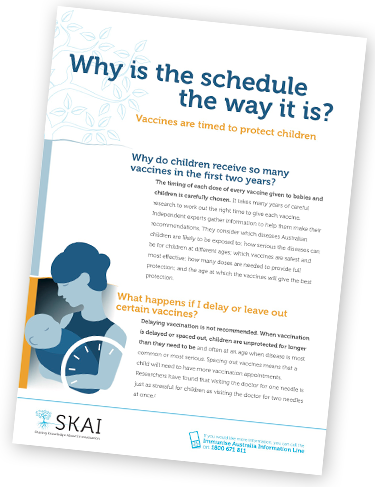Why is the schedule the way it is?
Key facts
-
The vaccination schedule is carefully planned so that babies and children get the best possible protection against serious infectious diseases as soon as they can.
-
It is important that children get all their vaccinations on time to ensure they have the best possible protection against infectious diseases.
-
If vaccination is delayed or spaced out, children are left without protection for longer than they need to be.
